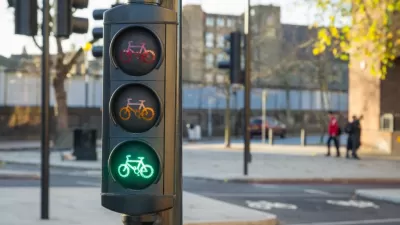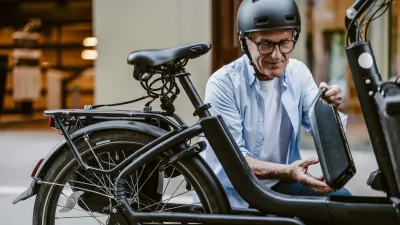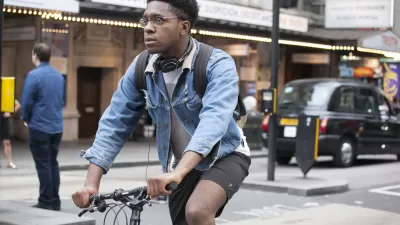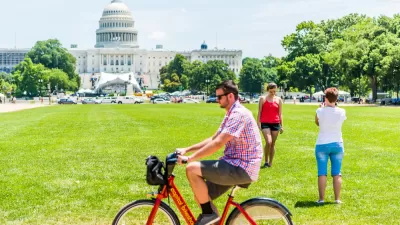A new book illuminates the history and meaning of the bicycle in human society.

“From their debut in the 1800s, bicycles have been a confounding presence on the streets, their riders’ unpredictable careening infuriating carriage drivers, then car drivers, and, the whole time, pedestrians.” Meanwhile, some cyclists cling to a “sense of moral superiority,” Zoë Beery writes in The Atlantic. “As climate collapse looms, bicycles have taken on a saintly quality, extolled as squeaky-clean instruments of penance for wealthy countries’ carbon emissions.”
This cut-and-dry story doesn’t tell the whole tale, argues a new book by Jody Rosen. “Two Wheels Good: The History and Mystery of the Bicycle takes readers time-traveling and globe-trotting to build up an alternate narrative about a simple machine that becomes harder to categorize the more you learn about it. Through history and across cultures, bicycles are a human denominator.”
The source article outlines Rosen’s book, which details the history of the bicycle and the cultural and historical significance of the machine. As Beery notes, “Fascinating tidbits organized by loose themes, abrupt topical switches within sections, and chapters on trick cycling, exercise bikes, and bikes as sex objects make the book comprehensive but also unfocused. Still, the meandering structure often feels like a leisurely ride, full of spontaneous detours into unexpected delight.”
Beery also calls the book “essential” for its “rigorous reporting” of historical facts and the less pleasant aspects of the bicycle’s history. “In showing that bikes have always been complicated—accessories to some and essential to others, means of recreation and of labor, signifiers of both wealth and poverty—Rosen also shows that they are universal, inviting even the most skeptical readers along with his humility and humor.”
FULL STORY: The Ideology of the Bicycle

Alabama: Trump Terminates Settlements for Black Communities Harmed By Raw Sewage
Trump deemed the landmark civil rights agreement “illegal DEI and environmental justice policy.”

Study: Maui’s Plan to Convert Vacation Rentals to Long-Term Housing Could Cause Nearly $1 Billion Economic Loss
The plan would reduce visitor accommodation by 25% resulting in 1,900 jobs lost.

Planetizen Federal Action Tracker
A weekly monitor of how Trump’s orders and actions are impacting planners and planning in America.

Waymo Gets Permission to Map SF’s Market Street
If allowed to operate on the traffic-restricted street, Waymo’s autonomous taxis would have a leg up over ride-hailing competitors — and counter the city’s efforts to grow bike and pedestrian on the thoroughfare.

Parklet Symposium Highlights the Success of Shared Spaces
Parklets got a boost during the Covid-19 pandemic, when the concept was translated to outdoor dining programs that offered restaurants a lifeline during the shutdown.

Federal Homelessness Agency Places Entire Staff on Leave
The U.S. Interagency Council on Homelessness is the only federal agency dedicated to preventing and ending homelessness.
Urban Design for Planners 1: Software Tools
This six-course series explores essential urban design concepts using open source software and equips planners with the tools they need to participate fully in the urban design process.
Planning for Universal Design
Learn the tools for implementing Universal Design in planning regulations.
Caltrans
Smith Gee Studio
Institute for Housing and Urban Development Studies (IHS)
City of Grandview
Harvard GSD Executive Education
Toledo-Lucas County Plan Commissions
Salt Lake City
NYU Wagner Graduate School of Public Service





























